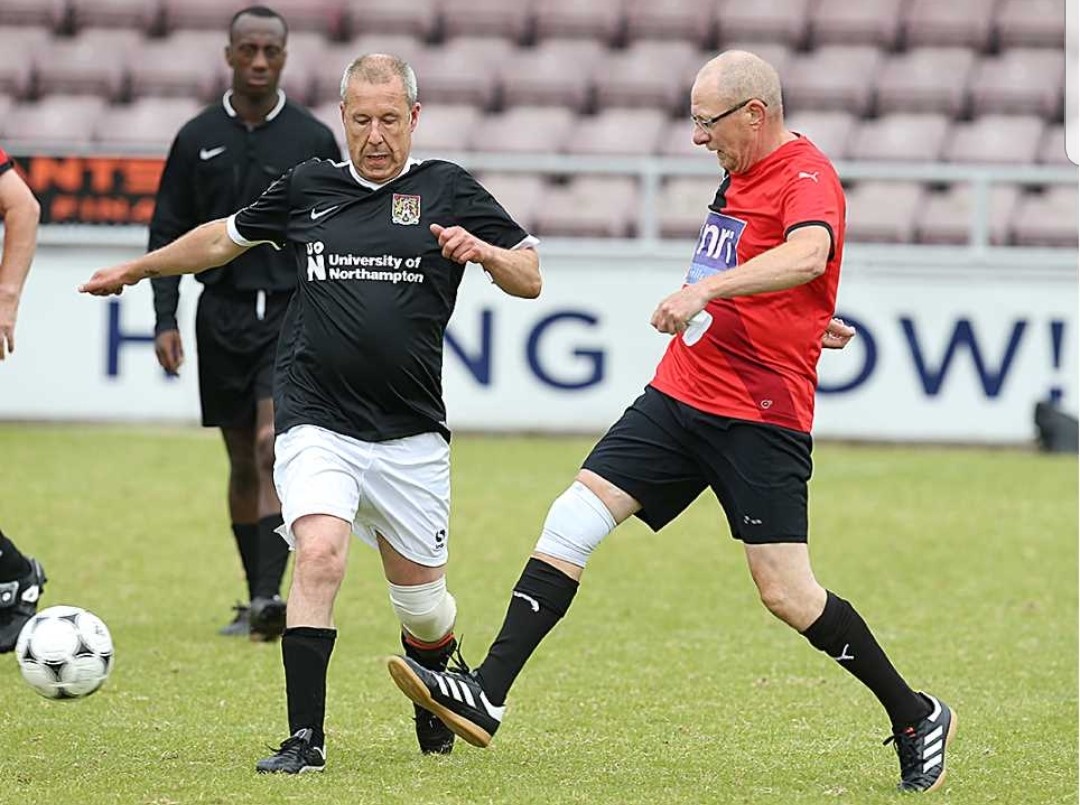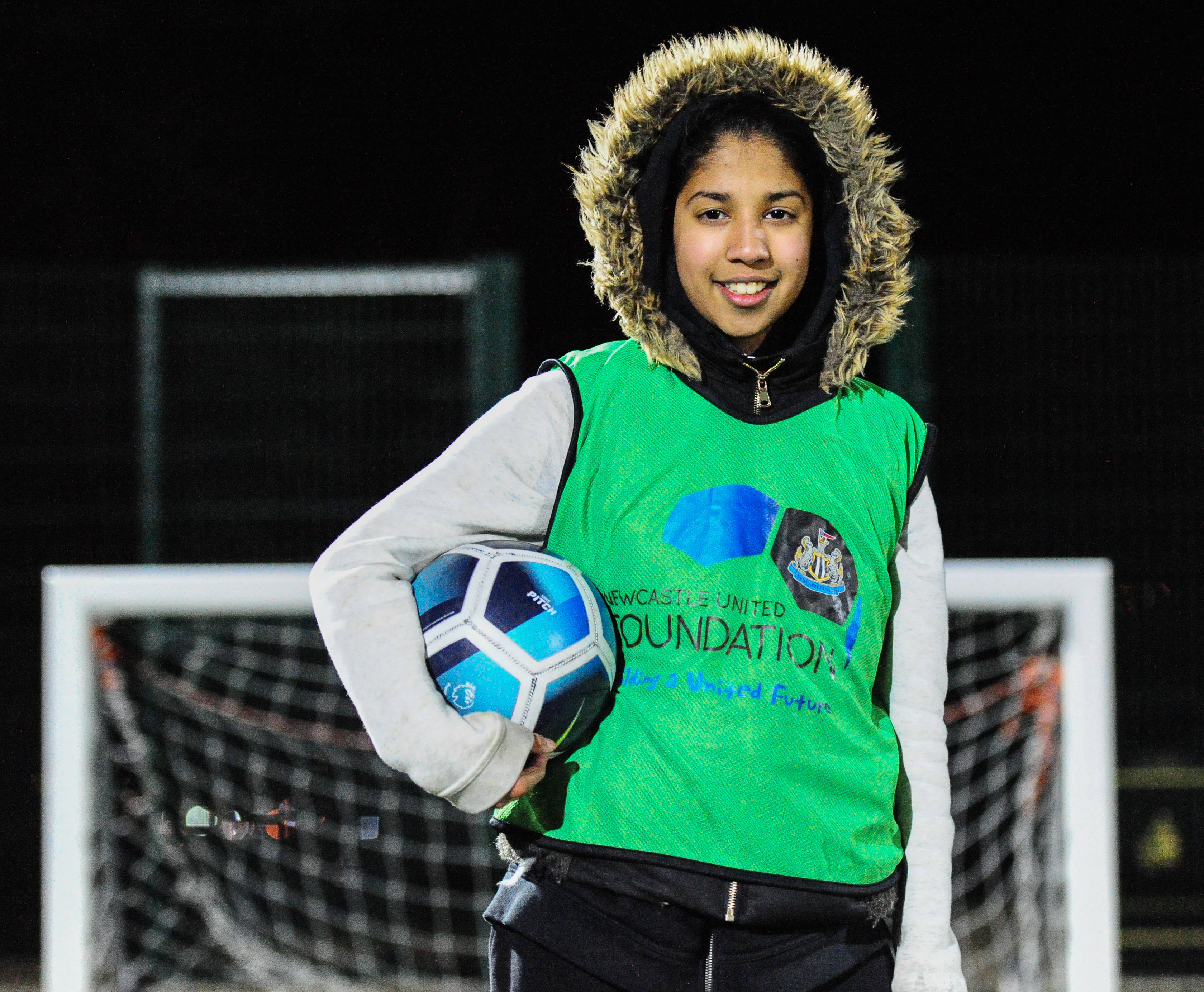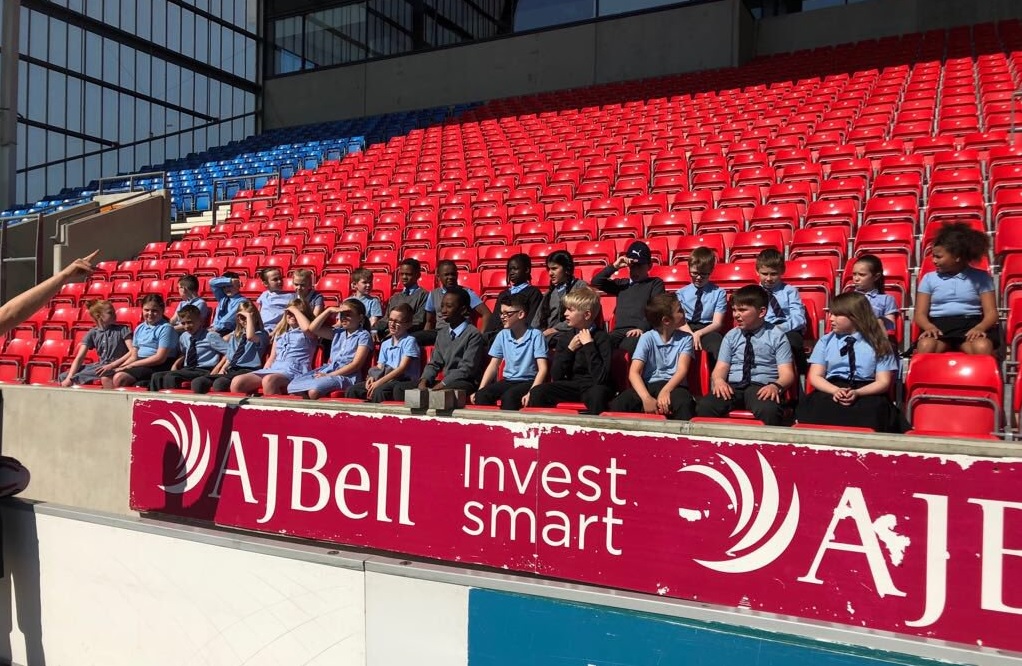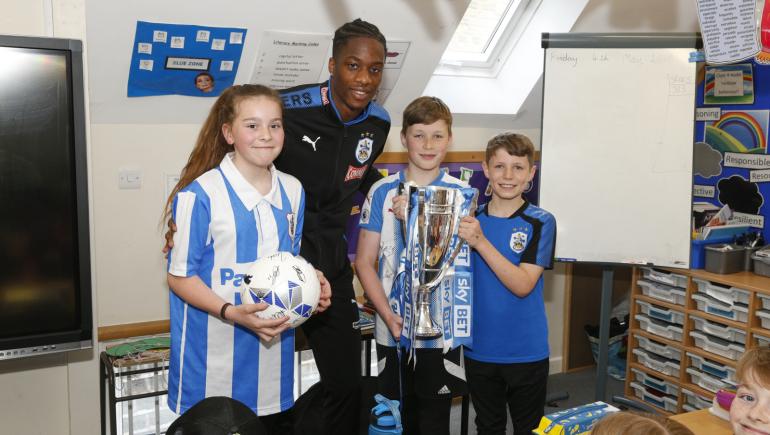“Professional sport teams are increasingly engaging in activities that target community development agendas” according to research recently published by Swinburne University in Melbourne, Australia. The research draws on activities by 70 professional sport teams in the UK, Australia and the USA, and can be accessed by clicking here. ConnectSport spoke to the authors Katie Rowe, Emma Sherry and Adam Karg.
Hi all, and thanks for speaking to ConnectSport. You say in the abstract that professional sports teams are "increasingly engaging in activities that target community development agendas". What are the reasons for this increase? Is it more than just about the 'bottom line', or financial gain?
“Professional sport teams engage with communities for a variety of reasons, many of which relate their interest in finding ways to connect with audiences. Teams want to build meaningful relationships with current and prospective fans and encourage them to engage with the team and its associated brand and activities. Professionalisation of sport teams has also created opportunities for teams to explore ways to engage in practices that also contribute to communities in order to fulfil their obligations as good corporate citizens. Teams may also subsequently benefit from the good news stories and positive sentiment towards the team that may flow from their engagement in community-oriented work.
 “We reflect that many professional sport teams were established as community entities or were originally embedded within community contexts, servicing local stakeholders. But as they have grown, developed and broadened their scope of activities (professionalised) teams have needed to work harder to strategically engage with communities. By engaging in activities that target community development agendas, teams are able to build relationships while also giving back. It has been interesting to see the way different teams have established structures and strategies to do this with some establishing foundations (separate entities) while others undertake community work within their existing organisational structures.”
“We reflect that many professional sport teams were established as community entities or were originally embedded within community contexts, servicing local stakeholders. But as they have grown, developed and broadened their scope of activities (professionalised) teams have needed to work harder to strategically engage with communities. By engaging in activities that target community development agendas, teams are able to build relationships while also giving back. It has been interesting to see the way different teams have established structures and strategies to do this with some establishing foundations (separate entities) while others undertake community work within their existing organisational structures.”
Do the United Nations’ Sustainable Development Goals have any relevance in this context as yet, or is sport playing catch-up compared to big business and governmental goals?
“At this stage, we observe that teams seem more concerned with local needs and agendas that align with government policy (particularly in the UK) or issues of relevance to local stakeholders/communities. For example, we found in our research, examples where professional sport teams have engaged in consultation processes to identify needs within their local communities by speaking with local residents and advocacy groups to find ways to identify and contribute directly towards local settings and issues. We have also observed teams engaging with governments (at national or regional/local level) to deliver on their specific target agendas and policies. However, this is not to say that professional sport teams do not and will not engage in global issues. This seems to be an areas that is yet to be explored fully.”
You talk about further research being required to understand the nature and focus of such activities. Can you summarise how or where the literature was drawn from or accessed, and more importantly shared between teams or organisations. Is knowledge or guidelines being shared across different sports, for example? Is this a process which could be improved, and how?
“We observed an array of activities being undertaken by different teams and limited co-ordination between teams with respect to their approaches. Having said that, we also saw examples of league-led approaches and programmes that teams align with and deliver value to. The findings from our research indicate that vastly different approaches to community work are taken by professional teams in the UK (English Premier League) when compared with the US (National Football League) or Australia (Australian Football League). While anecdotally, there are reports of teams within and across leagues comparing notes regarding what they do, there do not appear to be established collaborative networks or developed approaches to share information and knowledge globally.
 “The literature used to frame the manuscript was drawn from Academic literature that focuses on the concepts of corporate social responsibility (CSR) and sport for development (SFD). Interestingly, we observed that past research had not provided a clear picture of the types of initiatives that professional sport teams were delivering or the target agendas they target. Past research has also mainly focused on a single region in any one study and few international comparisons identified. We therefore wanted to provide these insights and to start to build a knowledge base around this work through our research.”
“The literature used to frame the manuscript was drawn from Academic literature that focuses on the concepts of corporate social responsibility (CSR) and sport for development (SFD). Interestingly, we observed that past research had not provided a clear picture of the types of initiatives that professional sport teams were delivering or the target agendas they target. Past research has also mainly focused on a single region in any one study and few international comparisons identified. We therefore wanted to provide these insights and to start to build a knowledge base around this work through our research.”
Can you explain the regional variations, ie 'giving' in the US and 'capacity-building' in the UK? With regards to the latter, do you think this field presents a genuine opportunity to supplement an embattled public sector in times of austerity and funding cuts?
“The categories of ‘giving’ and ‘capacity-building’ were developed based on insights gained from the literature but also based on data obtained. We observed some distinct differences in the way teams in the EPL and teams in the NFL were conceptualising and delivering various forms of community-oriented practice.
“For EPL teams, we saw the majority of work being focused on using funds accumulated through foundations (and/or team structures) to develop and deliver content, workshops and programmes to directly engage with target groups. For example, employability/job skills programmes that target unemployed youth in a facility operated by the team’s foundation staff.
“This can be contrasted with initiatives driven by NFL teams, which more regularly focused on providing grants, awards and donations (philanthropic giving activities) and encouraging members of the community to volunteer their time to serve their local community. Further, initiatives such as food and clothing drives were also common in the US context, whereas the UK saw more government and foundation funded initiatives that were delivered by foundation staff. We reflect that teams in the NFL were more focused on bringing in resources and redistributing them. Whereas teams in the EPL were focused on using accumulated resources to develop and deliver programmes and initiatives that focus on building the capacity of individuals and groups within the community.”
You propose that the activities undertaken by teams be described as "community-oriented practice" – please could you elaborate on this? Do you mean that the teams need to understand their work more in specific developmental terms (ie something which ‘needs to be done’), rather than corporate social responsibility (or ‘nice to do’)?
 “We observe that the term CSR is very broad and encapsulates a whole range of activities (eg, economic, legal, ethical, and discretionary) that can vary from internally-focused initiatives to externally-focused activities. Much of the work conducted by professional sport teams in relation to community development agendas is a specific form of CSR that is externally focused (focused on community stakeholders) but also intersects with principles of sport for development, targeting SFD agendas including health, education, social cohesion and the like. We position the term community-oriented practice to capture this specific form of work.
“We observe that the term CSR is very broad and encapsulates a whole range of activities (eg, economic, legal, ethical, and discretionary) that can vary from internally-focused initiatives to externally-focused activities. Much of the work conducted by professional sport teams in relation to community development agendas is a specific form of CSR that is externally focused (focused on community stakeholders) but also intersects with principles of sport for development, targeting SFD agendas including health, education, social cohesion and the like. We position the term community-oriented practice to capture this specific form of work.
“We hope that by proposing this concept, others will continue to examine and refine knowledge in relation to the nature of this focused work, motivations for this work, and ultimately, the outcomes of this work (community and organisational outcomes). An ideal scenario would see communities and professional sport teams equally benefitting from the community-oriented practices of professional sport teams, perhaps making this a more sustainable prospect.
“Yet, we do not have a strong evidence base to confirm this at this stage. We believe that professional sport teams provide a valuable vehicle through which community work can be conducted and we see relationships between professional sport teams, philanthropic and non-profit donors and governments as key to this. However, we caution against investing greatly in these approaches without a greater body of evidence to suggest that it produces those outcomes for communities that are promised/intended. Monitoring and evaluation processes are crucial here and teams should engage in meaningful research processes around such activities.”
What kind of framework is required to communicate that important message at national and international levels, so that professional sport thinks more in terms of 'shared value' as opposed to 'CSR'? (Can platforms like ConnectSport and sportanddev help?) And could such as a process lead to a step change in thinking which would lead to sport being administered and viewed differently in the future?
“The key to this is likely an evidence base to show teams that shared value is possible through such activities and also case studies and guidelines for delivery. Professional sport teams need to be able to work with key experts and established service providers who have expertise in delivering on community objectives and outcomes to ensure the work they are doing is meaningful for community stakeholders. Teams should also be able to incorporate strategies that support their achievement of organisational value but not at the expense of community outcomes and impact.
“ConnectSport and sportanddev provide strong platforms that can house evidence, models, guidelines, resources and a network of experts to connect around relevant work in this space.”
Click here to access the research.
Our thanks to Katie, Emma and Adam. If you have research that you would like ConnectSport to consider for publication, please contact hello@connectsport.co.uk













